RHI scheme: Plan to inspect 100% of boilers is shelved
- Published
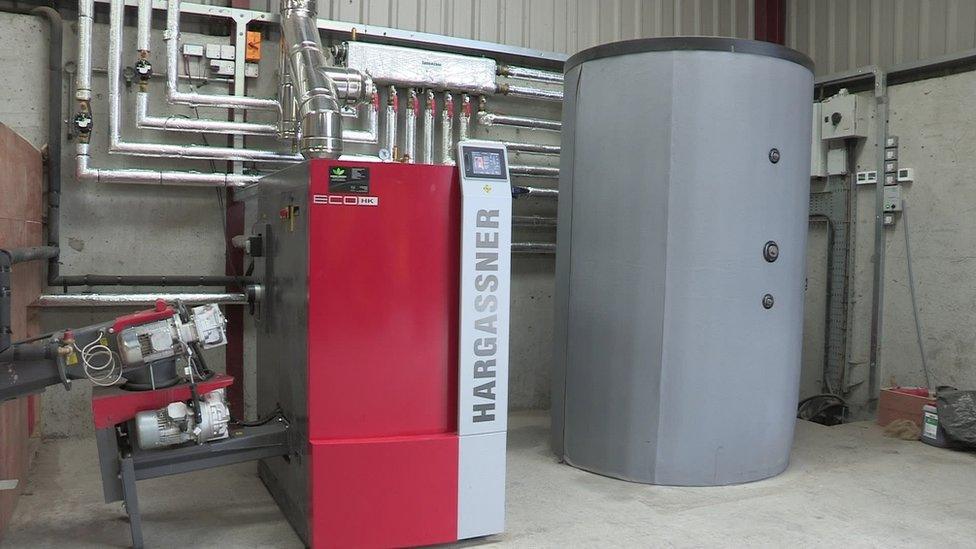
Overly generous subsidies for the fuel used to power wood pellet boilers meant the costs of the scheme spiralled out of control
A plan to inspect 100% of Renewable Heat Incentive (RHI) scheme boilers in order to establish how they are being used has been shelved for now.
It follows problems in appointing a contractor to inspect the 2,100 installations on behalf of Stormont's Department for the Economy.
Instead, its officials plan to run a "pilot programme" of inspections.
The department was not able to say how many installations would now be inspected or when the work would begin.
It said "results from the pilot will be used to inform the way forward and the timeline for completing inspections of all installations".
In January, then Economy Minister Simon Hamilton said it was necessary to accelerate the process for 100% inspections.
"Given the circumstances that we find ourselves in, particularly with accusations of fraud and abuse, I do not think that we can leave it that long before inspecting," he said.
"We need to accelerate that process, which will require resource, and a tender is being drafted."
The RHI scheme was set up at Stormont in 2012 in a bid to encourage energy production from renewable sources.
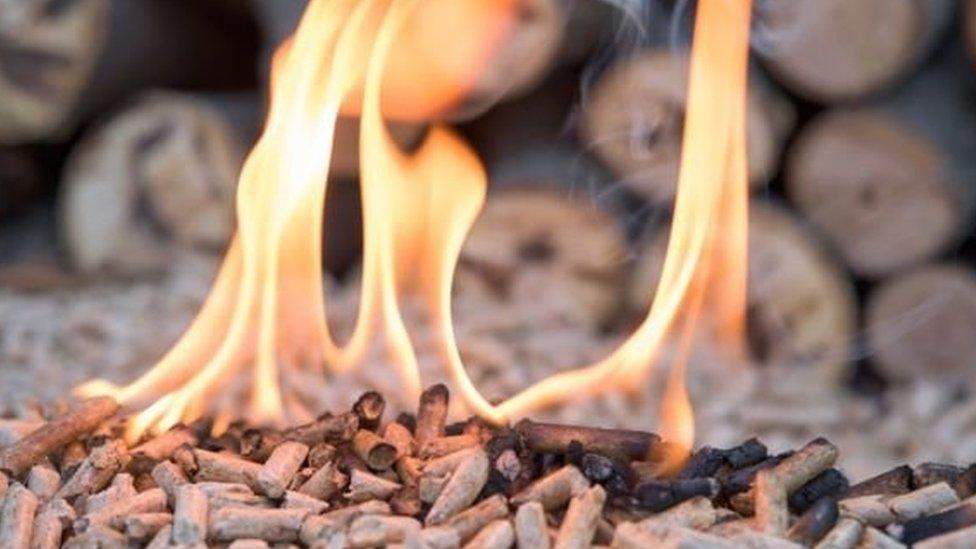
Ofgem has criticised the level of inspections of RHI installations when costs ran out of control
However, overly generous subsidies for the fuel used to power wood pellet boilers meant it was oversubscribed and costs spiralled out of control.
A row over a public inquiry into the scandal led to the collapse of Northern Ireland's coalition government, led by the Democratic Unionist Party (DUP) and Sinn Féin.
The regulator, Ofgem, will be involved in the pilot inspection programme.

Analysis by BBC News NI Environment Correspondent Conor Macauley
One hundred percent inspections were a key plank in attempts by politicians to deflect criticism from the handling of the RHI debacle.
The assembly was told that it would be necessary to accelerate the site visits to bear down on costs and abuse.
Instead the process has run into major difficulties.
And it could impact the public inquiry as the site inspection information would help inform questioning at oral hearings due in October.

Cost controls
Ofgem has already been criticised for the level of its inspections of RHI installations during the years when costs ran out of control.
The news about the 100% inspections came in a Northern Ireland Audit Office report on the RHI scheme in 2016/17.
It revealed that the overspend on the domestic and the controversial non-domestic scheme last year was £27m.
It was money that had to be found out of Northern Ireland's block grant from Westminster.
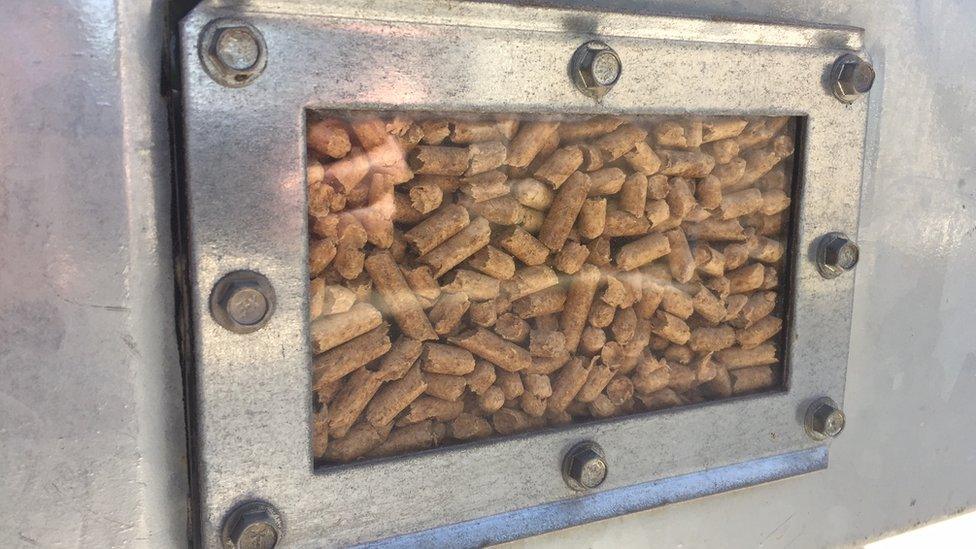
Boiler users can receive a maximum payment of almost £20,000 under the revised scheme
That was in addition to an £18m cost that was met from Treasury cash, making a total in year cost of £45m.
The audit office projects that new one-year cost controls, introduced in April this year, will bring the overspend for 2017/8 down to £2m instead of the £30m that it would have been under the old tariffs.
Those cost controls are the subject of a legal challenge by boiler owners due to be heard in the autumn.
The maximum possible payment for boilers under the revised scheme is almost £20,000 for a 199kw installation.
'Excessive profits'
That compares to a maximum subsidy of £56,000 for a 99kw boiler under the original terms.
The audit office report shows 300 boilers were inspected by PriceWaterhouseCoopers in the autumn of 2016, and issues were identified in more than half of them.
The auditors found that poultry, farm and commercial businesses were generating heat for an eligible purpose, within the intentions of the scheme.
But many were also able to run up "excessive profits" because of the lack of cost controls in the scheme.
Other businesses such as wood drying operations were found to be working outside of the way the scheme envisaged.
The details of the PWC investigation were passed to Ofgem for investigation, including 20 cases that gave concern.
Of these, 16 were cleared to continue in the scheme, two are still under investigation and two have been kicked out of the scheme.
The Department for the Economy is trying to claw back all money from those two schemes.
- Published26 June 2017
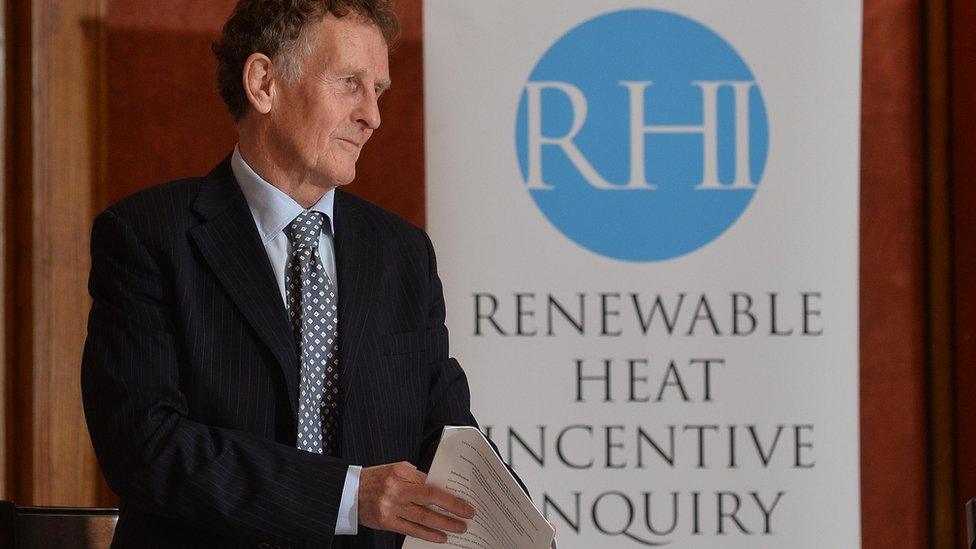
- Published8 May 2017
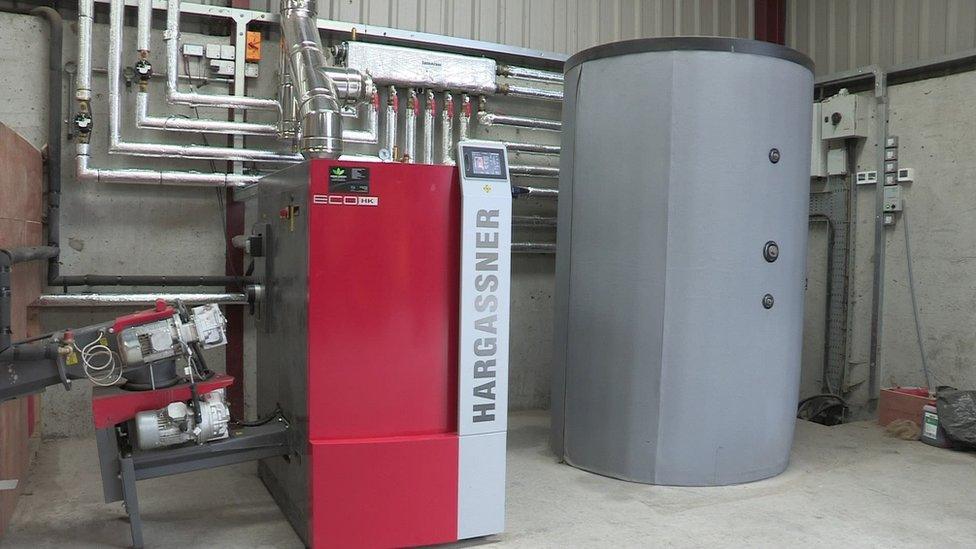
- Published7 November 2017
